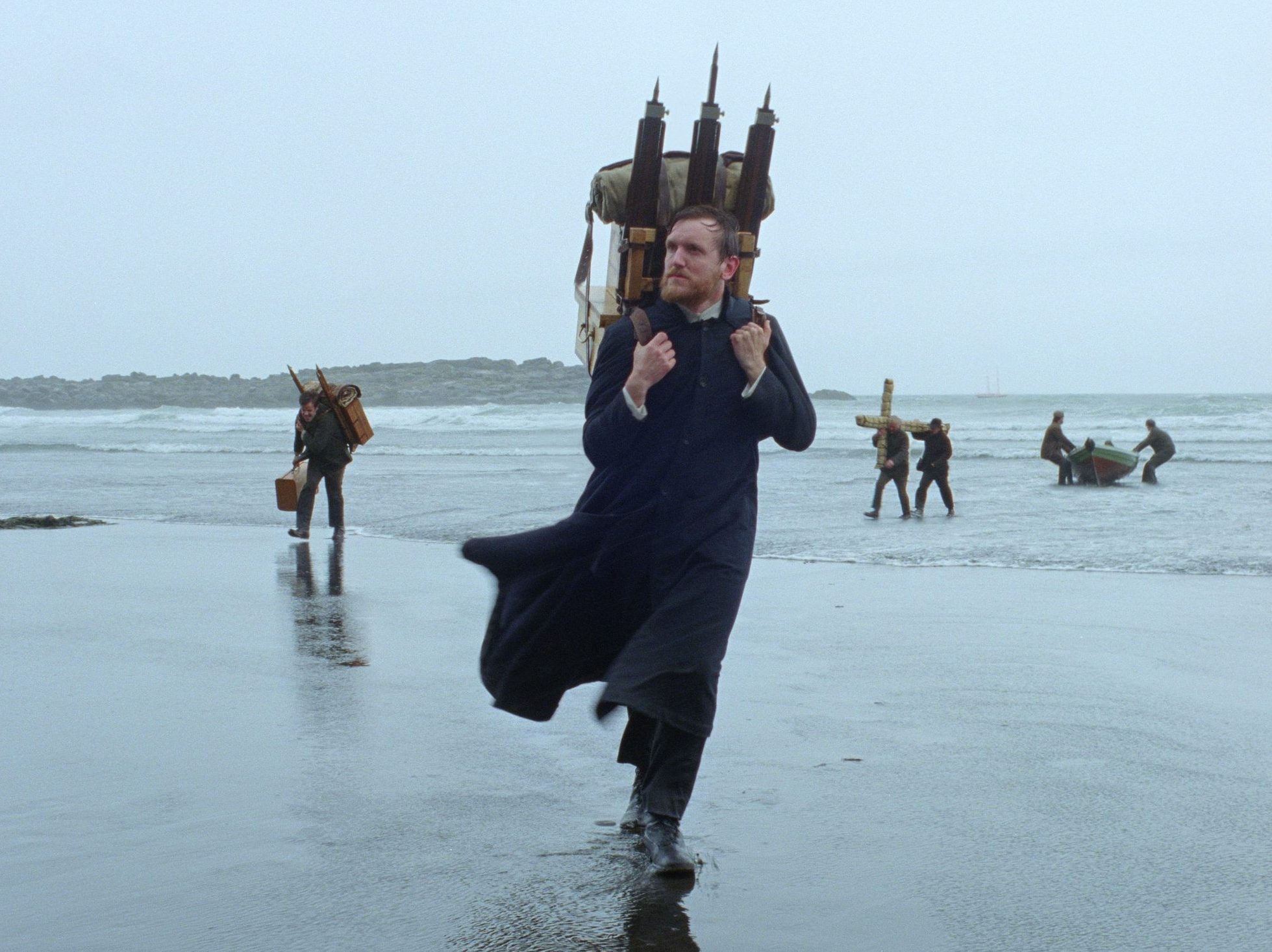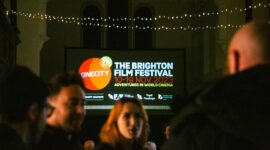
Review: Godland
By Jack Durrant, University of Sussex
Reviewed as part of CINECITY The Brighton Film Festival – Lewes Depot 13 Nov 22.
Godland (d. Hlynur Pálmason, 2022) provides its audience with an intimate portrait (both literally and figuratively given the 1.33:1 Academy ratio and close-up examinations) of a pious young Danish priest on a mission. The man of faith, Lucas (convincingly portrayed by Elliott Crosset Hove), is tasked with traversing the treacherous landscapes of rural Iceland so as to set up a church. The weather is unforgiving and Lucas doesn’t speak the language of his companions. He can’t ride a horse either. Although he lacks competence, he makes up for it with his conviction. And so, despite the fact that the journey appears irrevocably ill-fated, Lucas endures because of his belief that he has ‘so much of the divine piled up [in himself that he] cannot die.’ His internal assertion of immortality is constantly challenged, not least by the unforgiving terrain but by the uncertainty of the perilous expedition such as the instance whereby a fatigued Lucas falls from his horse and hastily rolls down a hill like a ragdoll. Thus, the external world and its physically trying attacks permeate the internal will to persevere. Stunning shots of the landscape reduce Lucas to an insignificant feature that simultaneously draws your attention thanks to his solely black garb. One man observes how ‘very small and fleeting’ we are, reflecting the ever-present yet subtly imposing themes of fragility and impermanence. Seasons change from cold to colder, the weather alternates between gusty and icy to gusty and foggy, and a series of shots depict the gradual decomposition of a fallen horse from lifeless mound to dilapidated carcass with bones strewn across the snow. Throughout the film, Lucas shows a somewhat unfounded desire for photographic documentation. His camera is about as large as himself and causes much frustration. Perhaps these images are a way of cheating the changing nature of reality; to create a snapshot that freezes people and places in a particular time. In fact, the narrative is inspired by a portfolio of photographs from the late 1800’s that were captured by a Danish priest. This is the ecstasy of cinema; to produce a compelling story by fabricating and imagining what could have happened simply by becoming curious when presented with such basic source material.
Dialogue is gracefully limited and gratefully appreciated by the subtitle-averse. What makes Lucas an interesting character to observe is his silence. Being an introvert means that the focus is drawn not only from his interaction with other people but through introspection. As well as being married to his faith, Lucas is glaringly neurotic and this is exacerbated by his circumstances; something that is slowly and gradually presented throughout the story. At a runtime of 138 minutes, spectators with an affinity for fast-paced action will find, by the time they reach the midpoint, that the film can feel unnecessarily elongated. For much of the film, the brink of destruction feels like a mere possibility. One is left guessing whether something of significant substance is going to happen after the forces of nature no longer become an immediate threat when the travelers reach a little community. Godland is a quiet film with distant revelations. Its visual imagery serves just as much as a point of interest as the characters themselves. There seems to be as many animals as there are people and there is a shock when the first speaking woman enters the narrative deep into the diegesis. Spectators will wonder what direction the film will take for its conclusion; does Godland seek to act as a horror, to toy with shock, terror, and suspense? Or is its aim to present the authentic ills of mankind when tempted with the call of the void? Word to the wise: pay attention to the dog.
